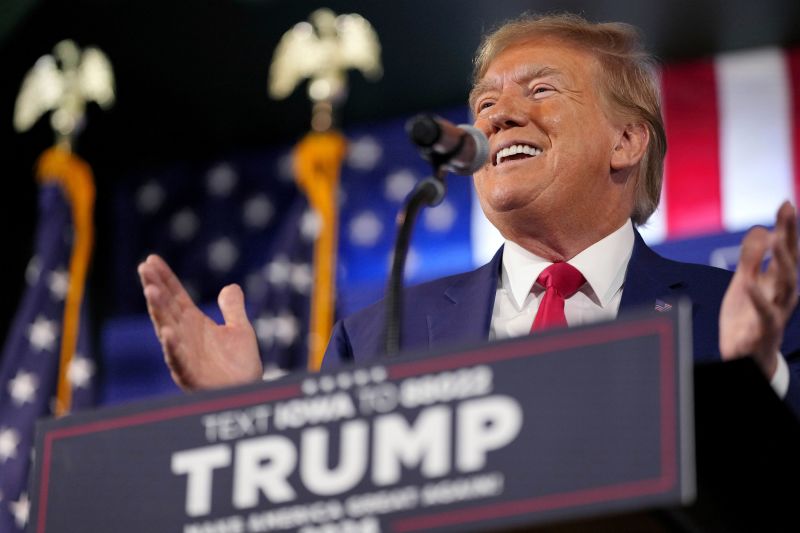Trump’s Commanding Lead in Republican Nomination Polls
Recent polls continuously place Donald Trump at the forefront of the Republican presidential nomination race, holding a substantial lead over his rivals. Despite this, his opponents strategically eliminate non-Trump competition before directly challenging him.
The Flaw in Rivals’ Strategy Against Trump
This strategy, however, appears to be flawed. Trump’s current standing is significantly stronger than in 2016. He is leading by over 40 points against close contenders like Ron DeSantis and Nikki Haley, and he also garners more than 60% of the Republican vote, suggesting a majority support that would prevail even against a consolidated rival.
Trump’s Enhanced Position Compared to 2016
In the 2016 cycle, Trump’s situation was different. Unlike his current commanding position, he was polling at around 25% to 30% of the GOP vote nationally. The dynamics of the current race show Trump in a more advantageous position, with his rivals struggling to unite the non-Trump Republican base.
Insights from Marquette University Law School Poll
A revealing poll from Marquette University Law School last month indicates Trump’s dominance. He captured 57% of the vote against all his GOP competitors. His support increased to 65% against DeSantis and 70% against Haley, numbers unseen in his 2016 campaign.
2016 Comparisons: Trump’s Competitive Edge
In 2016, even as late as March, Trump trailed Rubio and Cruz in one-on-one matchups. Today’s scenario is starkly different, diminishing the rationale behind rivals hoping to emerge as the sole challenger to Trump.
Early State Polling: Trump’s Favorability
Trump’s strength is evident in early-state polling, where he is the first or second choice of a majority of Republican caucusgoers or primary voters in Iowa and New Hampshire. His “favorable” and “very favorable” ratings among Republicans surpass any other Republican candidate.
Favorability Ratings: A Key Indicator
Trump’s “very favorable” rating stood at 51% in last month’s Marquette poll, with an average “favorable” rating of 76% among Republicans. These figures are substantially higher than any other Republican contender and are markedly improved from his 2016 cycle ratings.
2016 Cycle Comparisons: Trump’s Rise in Favorability
In the 2016 cycle, Trump’s “favorable” and “very favorable” ratings were significantly lower. He even had weaker favorable ratings than Republican figures like Bush, Ryan, and Romney.
GOP Rivals’ Debate Tactics: A Missed Opportunity
During the latest Republican primary debates, Trump’s rivals, except Christie, focused more on attacking each other rather than challenging Trump. This approach has seemingly contributed to Trump cementing his national advantage, with no visible shift away from him as the frontrunner.
Challenges in Directly Confronting Trump
While directly confronting Trump might seem plausible, its efficacy is questionable. Christie’s consistent criticism of Trump has not translated into favorable ratings among Republicans, possibly influencing other candidates’ reluctance to confront Trump head-on.
The Urgency for a New Approach Against Trump
With the Iowa caucuses fast approaching, Trump’s competitors face a dwindling timeframe to revise their strategies and bridge the gap with him. The current tactics have proven ineffective, necessitating a fresh approach to challenge Trump’s robust lead.

